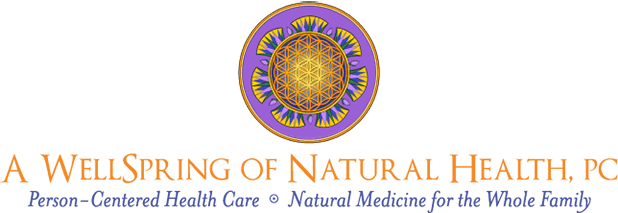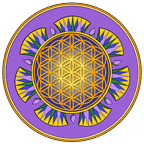
By Dr. Robert F. Stern DC, CFE, ABQAURP and Mitchell Bebel Stargrove, ND, LAc
History and Origins of Naturopathic Medicine
Naturopathic medicine is both an ancient and a modern tradition of medicine within the United States and Europe. It was formed officially at the beginning of the 20th century by physicians wishing to bring various traditions of classical and folk medicine into a modern scientific framework. Using the foundation of core principles that continue to define naturopathic medicine these doctors combined the best of European and American folk herbalism, Eclectic herbal medicine, homeopathy, hydrotherapy and hygiene, healing diets and nutrients, fasting and nature cure, exercise and spinal manipulation. At the time of naturopathy’s birth into a formal profession, Dr. Benedict Lust, one of its founders, declared that all types of doctors were welcome to call themselves naturopaths as long as their practice was consistent with these shared underlying principles.
Current Definition of Naturopathic Medicine
Today the American Association of Naturopathic Physicians defines naturopathic medicine as a blend of centuries-old natural non-toxic therapies with current advances in the study of health and human systems, covering all aspects of family health from prenatal to geriatric care. Naturopathic medicine concentrates on whole patient wellness – the medicine is tailored to the patient and emphasizes prevention and self-care. Naturopathic medicine attempts to find the underlying cause of the patients’ condition rather than focusing solely on symptomatic relief. Thus, the core principles of naturopathic medicine have generally been agreed upon as:
- The Healing Power of Nature, or in Latin: Vis Medicatrix Naturae, which is the fundamental observations that our human bodies are part of nature and that the force of life itself is healing. The ancient Greek word “physis” refers to this vital force of nature within all living organisms and is the root for such words as physician, physics and physique. Before the 20th century this approach to medicine was called Vitalistic; in the language of modern science it parallels the emerging knowledge of self-organizing processes, ecology and systems theory. Thus, naturopathy has always focused on health as much as disease, stimulating, enhancing and supporting your body’s inherent ability to heal as much as the virus, bacteria, injury or illness. We know what it feels like to be vital and vigorous. Naturopathy focuses on tapping into these deep resources and using them to heal our illnesses and keep us well.
- Treat the Cause, or in Latin: Tolle Causum. Many symptoms are expressions of the body’s attempt to heal itself and their suppression will not address the root causes of dysfunction, illness and disease. Quite simply, treating symptoms is always important in medicine but deep and lasting healing, the medical outcomes that we all really seek are based on discovering the causes of dysfunction and disease and changing them in a fundamental and lasting way. This also inherently means that each individual needs to be treated in a unique and evolving therapeutic process that reflects their history and physical characteristics, addresses their weaknesses, stresses and strengths, and creates opportunities for their own personal growth, self-discovery and transformation. Thus, a digestive problem such as heartburn needs to be treated but opens the doorway to looking at stress patterns, movement, tension and exercise, healing and stressful foods, and new tools for feeling what is good for us. Treating the cause removes blockages that have been preventing the natural healing processes from occurring and thus unleashes our inner healing momentum and empowers us to learn from our illnesses and difficulties to live better, stronger, healthier, more creative lives. Preventive medicine isn’t just about reducing risks and avoiding disease, it is really about learning to hear your body’s feedback and discovering ways to not just feel “OK,” but to feel better.
- Do No Harm, or in Latin: Primum no nocere. Hippocrates declared: “First, Do no harm” as the most important principle of medicine back in ancient Greece. Naturopathic medicine embraces a wide range of non-toxic therapies including lifestyle counseling and exercise programs, diet and nutrition, herbs and homeopathy, spinal manipulation to minor surgery. In fact, almost anything form of medical care can be consistent with naturopathic principles as long as it does not harm the patient or interfere with their body’s inherent healing processes. Minimizing side effects can come not from using weak medicines but should result from personalized care specifically directed toward your individual needs and possibilities within an attentive and skillful doctor-patient relationship using modern scientific tools but also taking the time to listen and provide a healing touch.
- Treat the Whole Person. Health and wellness, dysfunction or disease all result from a complex and ever-changing interaction of physical, emotional, dietary, genetic, environmental, lifestyle and other factors. Naturopathic physicians treat the whole person, taking all of these factors into account to craft an individualized, evolving and dynamic therapeutic process that doesn’t just treat your “problem” but focuses on you, the person who happens to have that “problem”.
- Doctor as Teacher. The literal meaning of “Doctor” is “teacher”. Thus, while a naturopathic physician recognizes the need to “fix” problems at a mechanical or symptomatic level, the greater opportunity for true and lasting healing arises when we, as patients, learn from our health problems and change how we live so that we avoid the situations that contributed to our distress and live our lives in more aware, healthy and nurturing ways. Thus, a naturopathic physician aspires to engender a safe and healing environment for a supportive and challenging therapeutic relationship.
The Education, Training and Licensing of Naturopathic Physicians
Naturopathic physicians (N.D.) are general practitioners trained as specialists in natural medicine. They are most highly trained practitioners in the broadest scope of naturopathic medical modalities. A naturopathic physician has a Doctorate of Naturopathic Medicine degree from a four-year graduate level naturopathic medical college with admission requirements comparable to those of conventional medical schools. In addition to the standard medical curriculum of basic medical sciences and conventional diagnostics, naturopathic students must do extensive coursework and clinical study in natural therapeutics such as therapeutic nutrition, botanical medicine, homeopathy, hydrotherapy, naturopathic manipulative therapy, pharmacology, counseling and minor surgery. Many NDs have additional training and certification in acupuncture and home birthing. Naturopathic Colleges are certified and regulated by The Council on Naturopathic Medical Education, accredited by that body and/or state or regional accrediting bodies, and recognized by the US Department of Education. Naturopathic physicians practice throughout the United States and Canada, as well as The United Kingdom, Australia, India and other countries, In the U.S., NDs are licensed in thirteen states, as well as the District of Columbia, Puerto Rico and Virgin Islands, each of which has a set of statutes and regulations, as well as a state medical board, which govern and oversee the practices of naturopathic physicians in that state. In many states, NDs are licensed as primary care providers with the authority to order lab tests, prescribe a broad range of prescription medications, and sign birth and death certificates.
Naturopathic Physicians practice a wide range of natural therapeutics, including:
Clinical Nutrition. Nutrition and therapeutic use of food have always been a fundamental aspect of naturopathic medicine. A growing body of scientific knowledge on diet and nutrition validates this approach to promoting health, preventing illness and treating disease. Many medical conditions can be treated effectively, with fewer complications and adverse effects, using foods, customized diets, and nutritional supplements. Proper nutrition for the individual provides the foundation of preventive medicine and a healthy lifestyle.
Homeopathy. This powerful system of medicine was first developed in its modern form in Germany more than 200 years ago. Homeopathic medicines act to stimulate and organize the body’s innate healing response.
Botanical Medicine. Plants can be powerful medicines. A growing body of scientific research demonstrates that herbs can often be as effective, and sometimes superior to, pharmaceutical drugs in clinical situations. When used appropriately, they are safe and effective.
Physical Medicine. Naturopathic physicians are trained in techniques of massage, manipulation, and physical therapeutics, which are used to treat injury and pain.
Dr. Robert F. Stern
DC, CFE, ABQAURP
Medical Director/ Allied Health, CGI
Mitchell Bebel Stargrove, N.D., L.Ac.
A Wellspring of Natural Health, PC (WellSpringofHealth.com)
Founder, Integrative Medical Arts Group, PC (OurIBIS.com)
Editor, IBIS: Integrative BodyMind Information System
Editor and Coauthor, Interactions: Comprehensive Guide to Drug-Herb and Drug-Nutrient Interactions in the Clinical Practice of Integrative Medicine
Member, National Committee on CAM Informatics
For more information:
American Association of Naturopathic Physicians
http://www.naturopathic.org
Cummings S, Ullman D. Everybody’s Guide to Homeopathic Medicines. Jeremy P. Tarcher/Putnam Publishing.
Grossinger R. Planet Medicine: Modalities. Shambhala.
Grossinger R. Planet Medicine: Origins. Shambhala.
Hudson T. Women’s Encyclopedia of Natural Medicine. Keats.
Kurtz R, Prestera H. The Body Reveals, Harper & Row Publishers.
Mitchell W. Plant Medicine. Churchill-Livingstone.
Murray MT, Pizzorno JE. Encyclopedia of Natural Medicine, Revised Second Edition
Pizzorno LU, Pizzorno JE, Murray MT. Natural Medicine Instructions for Patients. Churchill-Livingstone.
Werbach, MR. Foundations of Nutritional Medicine. Third Line Press.


